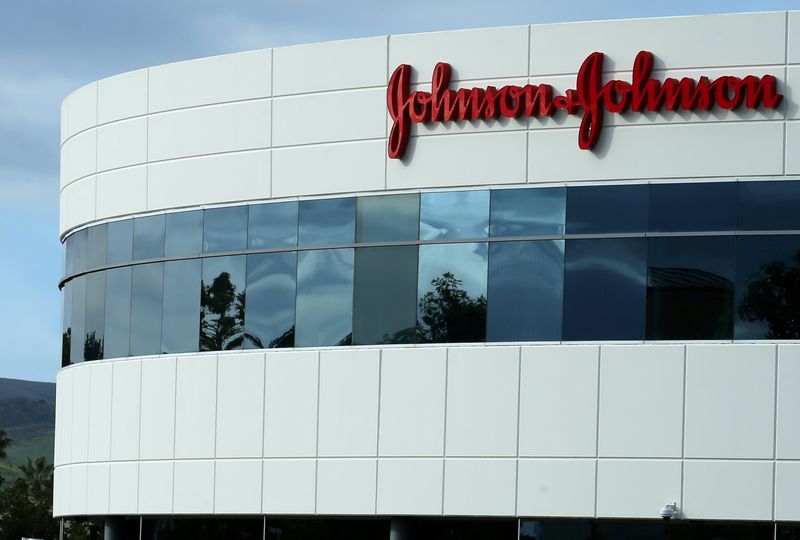By Nate Raymond
(Reuters) -U.S. state attorneys general are expected this week to unveil a $26 billion settlement resolving claims that three major drug distributors and drugmaker Johnson & Johnson (NYSE:JNJ) helped fuel a nationwide opioid epidemic, people familiar with the matter said on Monday.
Distributors McKesson Corp (NYSE:MCK), Cardinal Health Inc (NYSE:CAH) and AmerisourceBergen (NYSE:ABC) Corp would pay a combined $21 billion, while Johnson & Johnson would pay $5 billion. New York on Tuesday is expected to announce the distributors have agreed to a $1 billion-plus settlement with the state, a source said.
The ultimate settlement pricetag could fluctuate depending on the number of states and political subdivisions that agree to the deal or reject it and pursue litigation on their own in hopes of a bigger payout down the line.
More than 40 states are expected to support the nationwide settlement, two sources said. States will have 30 days to decide whether to join the global accord then more time to try to convince their cities and counties to participate in the deal, the sources said.
McKesson has previously said that of the $21 billion the three distributors would pay over 18 years, more than 90% would be used to remediate the opioid crisis while the rest, about $2 billion, would be used to pay plaintiffs' attorney fees and costs.
Several states have passed laws or reached agreements with their political subdivisions to govern how settlement proceeds would be allocated in the event of a nationwide settlement.
The financial terms are in line with prior disclosures by the three distributors and J&J about what they expected to have to pay following long-running settlement talks.
"There continues to be progress toward finalizing this agreement and we remain committed to providing certainty for involved parties and critical assistance for families and communities in need," J&J said in a statement.
McKesson and Cardinal Health had no comment while AmerisourceBergen said it does not comment on "rumor and speculation." They have all previously denied wrongdoing.
Nearly 500,000 people died from opioid overdoses in the United States from 1999 to 2019, according to the U.S. Centers for Disease Control and Prevention (CDC). The opioid crisis appeared to worsen during the COVID-19 pandemic.
The CDC last week said provisional data showed that 2020 was a record year for drug overdose deaths with 93,331, up 29% from a year earlier. Opioids were involved in 74.7%, or 69,710, of those overdose deaths.
The distributors were accused of lax controls that allowed massive amounts of addictive painkillers to be diverted into illegal channels, devastating communities, while J&J was accused of downplaying the addiction risk.
Governments have said the money will be used to fund addiction treatment, family support programs, education and other health initiatives to address the crisis.
Other settlements are also being negotiated, with the opioid makers Purdue Pharma and Mallinckrodt (OTC:MNKKQ) Plc now working through the bankruptcy courts to secure support for settlements worth more than $10 billion and $1.6 billion, respectively.
The distributors have been in the midst of two trials nationally in the litigation, one in New York and one in West Virginia. They have now agreed to resolve the New York case, a person briefed on the matter said.
The deal with New York Attorney General Letitia James and the populous Long Island counties of Nassau and Suffolk comes three weeks into the first jury trial accusing companies of profiting from a flood of addictive painkillers that devastated communities.

Closing arguments are expected in the West Virginia trial next week. Local West Virginia communities had opted out of the proposed nationwide deal to pursue one on their own.
The New York trial will continue against three drugmakers accused of deceptively marketing their painkillers - Endo International (NASDAQ:ENDP) Plc, Teva Pharmaceutical Industries (NYSE:TEVA) Ltd and AbbVie Inc (NYSE:ABBV)'s Allergan (NYSE:AGN) unit.